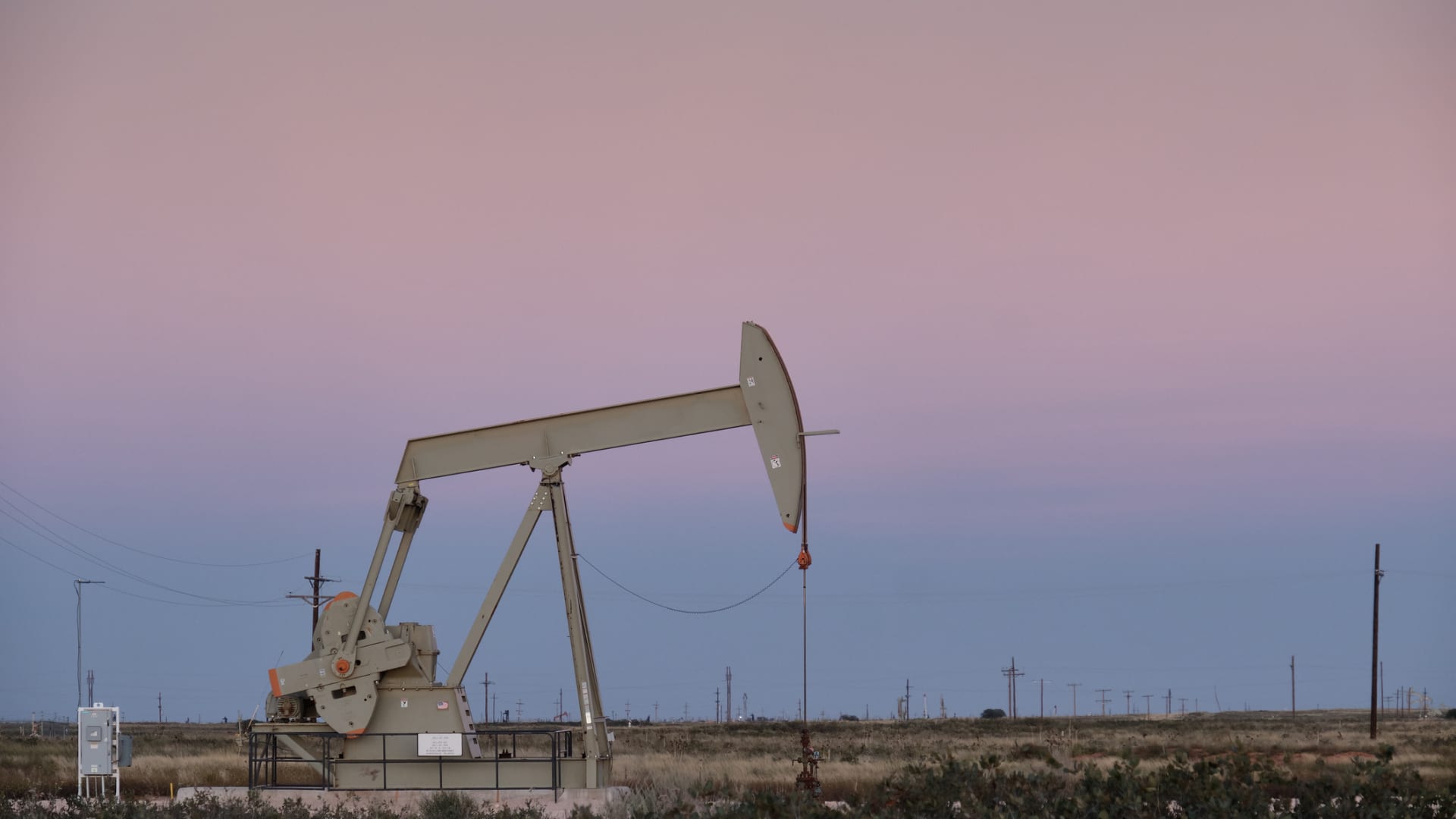Here’s what’s driving Wall Street’s newfound bullishness on Coterra Energy — and why we agree


Wall Street analysts are warming up to Coterra Energy , a stock we bought more shares of just last week when it was firmly out of favor. In recent days, Citigroup, UBS and Wells Fargo all upgraded Coterra to buy-equivalent ratings, highlighting a host of fundamental reasons — including improving capital efficiency — to own the oil-and-gas producer despite volatility in commodity markets. Including its 3% gain Thursday, to over $25 per share, Coterra’s stock is on pace for only its second-positive week in seven. Shares of Coterra entered Thursday’s session down 17% since mid-October, coinciding with a steep swoon in crude oil and natural gas prices. Oversupply concerns have weighed on both commodities in recent weeks, though each traded higher Thursday. West Texas Intermediate crude, the U.S. oil benchmark, soared 4% in afternoon trading, to more than $72 a barrel. U.S. natural gas gained about 1%, to roughly $2.36 per million British thermal units. Coterra is distinct among its exploration-and-production peers because its revenues are split roughly 50-50 between oil and natural gas. The significant exposure to both is one reason why we’ve stayed invested in Coterra, despite pairing back our overall energy exposure this year. “This is one I do want you to own,” Jim Cramer said Thursday. “You don’t get three brokers upgrading a stock all in one week” that often, he added. In the near term, Coterra’s stock may struggle to make a sustained move higher if unusually warm weather persists throughout the winter, meaning there’s less natural gas needed to heat homes and buildings, Jim acknowledged. “But that’s not I bet I want to make. I think you want to be long Coterra,” he said. CTRA YTD mountain Coterra’s year-to-date stock performance. Citigroup kicked off a wave of Coterra upgrades Monday and raised its price target to $30 per share, up from $28. The company’s oil-and-gas operations both “appear ripe” to deliver improved capital efficiency next year, resulting in lower breakevens, Citi analysts wrote in a research note. A breakeven is the commodity price a company needs to profitably drill a new well. “The recent pullback on near term commodity price weakness presents an opportunity in our view” to buy Coterra, the analysts argued — a recommendation that mirrors the contrarian action we took Dec. 6 , when we added to our position at $24.81 per share. Analysts at Wells Fargo and UBS issued their upgrades Thursday. Like Citi, Wells Fargo expressed optimism around Coterra’s efficiency improvements and said the stock trades at a relative discount to its peers, based on 2025 financial estimates. The firm lifted its price target on Coterra to $30 per share, from $29. “Over the past 12 months, [management] has deftly orchestrated a turnaround for the company,” Wells Fargo said, referring to investor concerns about Coterra’s asset write-downs in November 2022, which we had argued were overblown . The more money Coterra is able to make — whether that’s through efficiency gains, higher commodity prices or some combination of the two — the more cash the company will have to return to shareholders through share repurchases and dividends. Since early 2023, Coterra has placed a greater emphasis on stock buybacks, a decision we continue to support. Wells Fargo also favors that approach. Meanwhile, UBS lowered its price target to $31 per share, down from $33, to reflect lower expected natural gas prices in 2024 and 2024. Still, like the two other banks, UBS lifted its rating on the stock to a buy from hold. Coterra has a strong balance sheet — an important measure of financial health — and diversified assets compared with its natural gas rivals due to its presence in the oil-rich Delaware and Anadarko basins in Texas and Oklahoma, respectively, UBS said. The oil exposure helps insulate Coterra against lower natural gas prices because the company can shift its capital investment priorities based on where the highest likely returns are, UBS explained. Coterra and the broader energy sector have lagged the overall market in 2023. Coterra is up just over 3%, compared with the S & P 500 ‘s more-than-23% advance year-to-date. “Energy stocks have been tough to own this year, but the group has offered trading opportunities to those willing to hold their nose and buy when the group is overly hated and then turn cautious when everyone gets bulled up,” Jeff Marks, the Club’s director of portfolio analysis, said Thursday. (Jim Cramer’s Charitable Trust is long CTRA. See here for a full list of the stocks.) As a subscriber to the CNBC Investing Club with Jim Cramer, you will receive a trade alert before Jim makes a trade. Jim waits 45 minutes after sending a trade alert before buying or selling a stock in his charitable trust’s portfolio. If Jim has talked about a stock on CNBC TV, he waits 72 hours after issuing the trade alert before executing the trade. THE ABOVE INVESTING CLUB INFORMATION IS SUBJECT TO OUR TERMS AND CONDITIONS AND PRIVACY POLICY , TOGETHER WITH OUR DISCLAIMER . NO FIDUCIARY OBLIGATION OR DUTY EXISTS, OR IS CREATED, BY VIRTUE OF YOUR RECEIPT OF ANY INFORMATION PROVIDED IN CONNECTION WITH THE INVESTING CLUB. NO SPECIFIC OUTCOME OR PROFIT IS GUARANTEED.
Wall Street analysts are warming up to Coterra Energy, a stock we bought more shares of just last week when it was firmly out of favor.
This post has been syndicated from a third-party source. View the original article here.




